As mentioned in a footnote for a previous article,
“There’s a special class of comfort fictions whose appeal is that as badly as my day might be going, at least it’s not as bad as the protagonists’ day. Threads, for example.”
This might seem counterintuitive (or perhaps not: a lot of people enjoyed Garbage’s “Only Happy When It Rains” and perhaps you are one of them). I assure you that this coping mechanism definitely works. Not only that, but speculative fiction authors have your back in the matter of stories that start off bleak before rapidly becoming bleaker.
Consider these five tales.
The Last Man by Mary Shelley (1826)
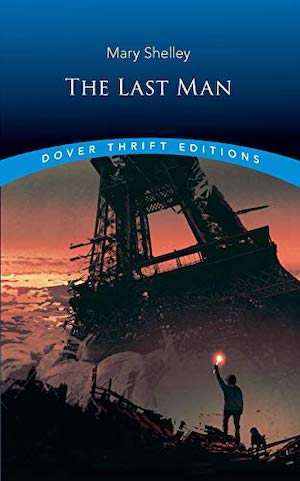
Set in a 21st century oddly similar to the 19th in which the book was written, Shelley’s apocalyptic novel begins optimistically enough. The British monarchy falls. England is a republic once more. Despite the usual sort of foreign wars plaguing the world on the other side of the channel, it seems England at least can hope for political progress in the days to come.
This is a sadly misplaced hope.
The characters’ inability to avoid personal entanglement in overseas conflicts are the least of their problems. A new and deadly pathogen is sweeping the world. Just as the Black Death made it across the channel, so too does the new plague. Unlike the Black Death, the plague does not leave survivors in its wake. Will our heroes be able to find some sufficiently isolated hiding place to wait out doomsday? Consider the title of the work….
“All Summer in a Day” by Ray Bradbury (1954)
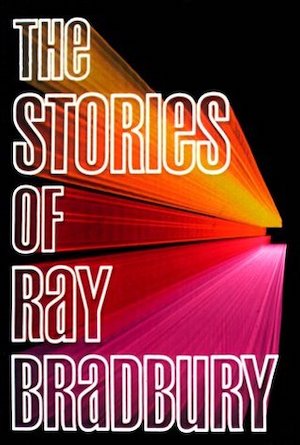
This very much pre-Mariner 2 version of Venus is a tropical world continually beset by nearly endless rainstorms. Having never seen the sun, children raised on Venus do not appreciate what they are missing. Earth-born Margot does, remembering the blue skies of the planet of her birth.
The important term is “nearly endless.” Every seven years the skies briefly clear. Margot may be stuck on Venus but at least she and her classmates will be able to see blue sky and direct sunlight, if only for a moment. At least, Margot could, if her classmates were not beastly little brutes who pick exactly the worst moment to lock Margot in a closet.
Zorachus by Mark E. Rogers (1986)
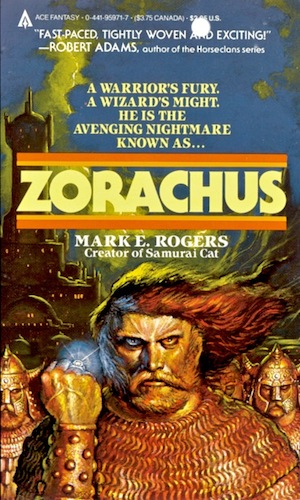
From the author who brought us the light-hearted Samurai Cat parodies comes a tale in which pious, kind-hearted wizard Zorachus is dispatched to Khymir, the world’s wickedest city. Zorachus is very nearly a living saint. Victory is assured! Although not for Zorachus.
The people of Khymir embrace and embody every possible variation of depravity, debauchery, and cruelty. They might seem ideal candidates for conversion to virtue. However, they prove far more adept at convincing naïve Zorachus to embrace temptation than the saint is at resisting temptation.
Divided by Infinity by Robert Charles Wilson (1998)
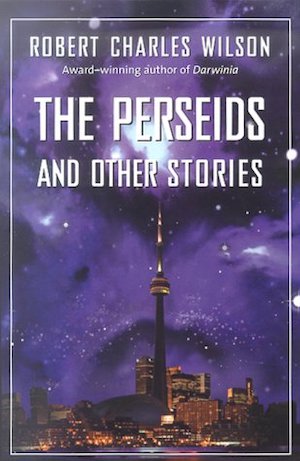
Life’s many calamities failed to kill Bill Keller…or did they? His reward for surviving sixty years is bereavement: Bill Keller lives in a Toronto now sad and barren after the recent death of his wife, Lorraine. Grief brings leads him to contemplate suicide, which Keller resists…or does he?
Lorraine’s former employer, Zeigler, takes pleasure in the fact that simple survival delivers one to an increasingly science fictional universe. Zeigler does not appreciate just how true that is. Bill Keller will receive a very personal education in the implications of the Many Worlds model, which delivers survival whether or not one wants it…but also death in uncountable variations, as well as endless, inescapable isolation.
Cascade by Rachel A. Rosen (2022)
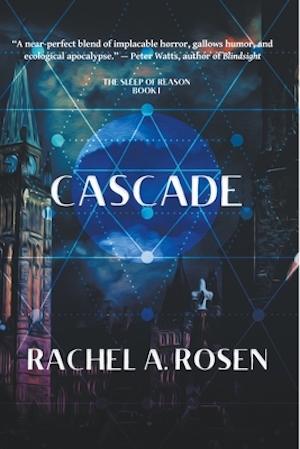
Political divisions, climate change and the sudden return of magic delivered the death blow to the United States of America, now collapsed into warring dystopian states. Calamity for Americans is a godsend for smug Canadians. Unlike poor America, Canada’s democratic institutions proved sufficiently robust to weather the 21st century’s crises.
Dispassionate observers might point out to self-congratulatory Canadians that the Titanic kept afloat for more than two hours after hitting the iceberg. The Party might believe it is Canada’s natural ruling party, the embodiment of “peace, order and good government,” but it is mistaken. Prime Minister Patrice Abel has never seen an embarrassing scandal into which his uncontrolled libido could not propel him. The Party’s success is thanks to political wizard Ian Mallory and his prophetic gifts.
Mallory can see all futures. What he does not share with his allies is that all of those futures are terrible. He cannot guide the Party to victory. He cannot protect Canada from its own native-born fascists. Indeed, he cannot even save himself. All he can hope for is the least-bad choice from a wealth of terrible options.
***
No doubt those of you who enjoy this sort of reveling in doom have your own favourites, works not mentioned here. Feel free to point out the publications I overlooked. Comments are, as ever, below.
In the words of fanfiction author Musty181, prolific book reviewer and perennial Darwin Award nominee James Davis Nicoll “looks like a default mii with glasses.” His work has appeared in Publishers Weekly and Romantic Times as well as on his own websites, James Nicoll Reviews (where he is assisted by editor Karen Lofstrom and web person Adrienne L. Travis) and the 2021 and 2022 Aurora Award finalist Young People Read Old SFF (where he is assisted by web person Adrienne L. Travis). He is a four-time finalist for the Best Fan Writer Hugo Award, and is surprisingly flammable.










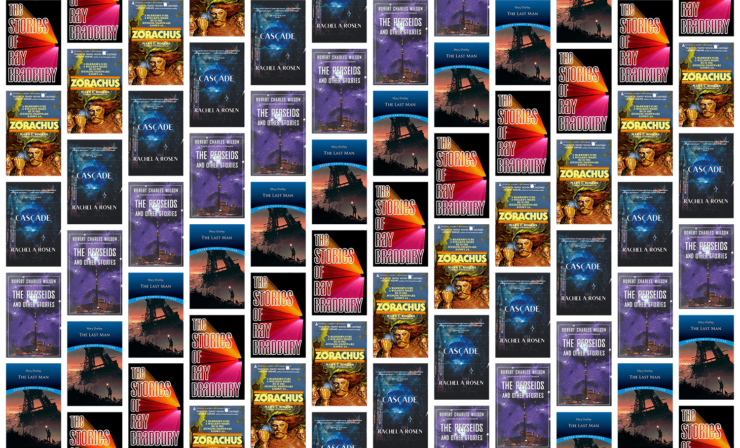
Mary Gentle’s “Ancient Light” also had a real downer of an ending, although I enjoyed the book up till then. I wish she would revisit that world.
It is historical and not either F or SF but people suffering from a surfeit of joy would be well advised to screen Grave of the Fireflies, which starts off with a boy starving to death while indifferent passersby ignore him and then somehow becomes far more downbeat.
I saw the author and the title and I was absolutely certain a Peter Watts work would make an appearance. I guess you’re saving him for a special occasion.
Watts was included or at least his blurb on Cascade’s book cover was :D
I’d put John Brunner’s novel Total Eclipse in there – about an archeological dig of the ruins of an alien civilization. From the reasons for the alien civilization’s collapse, to political instability threatening to strand the team on the planet, to the final, downer to end all downers ending…
It’s not a very happy book.
Jack Womack’s Random Acts of Senseless Violence. Lola’s world (near-future New York City) is dissolving day by day and bit by bit into chaos and dystopia, and as Lola is twelve years old, she can see the cracks forming but has absolutely no way to fix anything and so flings herself into delinquency as an escape. Also second only to A Clockwork Orange in the immersive use of near-future slang–we learn it along with Lola, and by the end of the book, the reader is as fluent as she is.
There’s always Brunner, and so much of it came true!
1984, and so much of it came true! (Kudos to JM@7 for the inspiration).
Also, I can’t avoid thinking about the “troubles” of Morn Hyland in Donaldson’s The Gap Series. Holy cr@p. How much trauma can a single character face?
Arthur C. Clarke’s short story “All the Time in the World.” Read it in an anthology of SF designed for younger readers, Tales of Time and Space. Never knew the calibre of authors collected there when I first read it.
@8 How much trauma can a single character face? In a Stephen R. Donaldson novel? That’s not a safe question to ask.
@@.-@ Watts has the concurrent ability to make me gasp at his inventiveness and writing, and run screaming for the darkness under my duvet. I never read a book by him that did not invoke both reactions.
I’m gonna say C. M. Kornbluth’s “The Marching Morons.” It’s hugely pessimistic, and Kornbluth’s implicit argument in favor of eugenics is discomforting (though it must be said that such a viewpoint makes sense for Kornbluth, who was clearly disgusted with human existence), but what makes it weirdly satisfying is that the protagonist is a huge schmuck who gets his just desserts. It’s like Idiocracy if the protagonist of that movie, instead of becoming a hero, got drawn and quartered for being exactly the kind of asshole who contributed to the bad future.
Hah! The first couple of Samurai Cat books are the first books I ever read to death. (Sadly, very cheaply put together to start with.) :)
After reading “All Summer in a Day”, I have to go away and read “The Sun Shone On Venus”, which deals with what happened to Margot after.
#2 Everybody should see it once and nobody ought ever be asked to see it twice. For ob. sf. We All Died at Breakaway Station: “this book promises a lower survival rate than an Honor Harrington book and a more black and white set of characters and delivers. Recommended for people who like that sort of thing“
14. Thank you very much for the pointer to “The Sun Shone on Venus”.
There’s _Level 7_ by Mordecai Roshwald– slow death from nuclear war. The shelter wasn’t good enough.
_The Face of Twilight_ by Mark Simmons. Slow death by entropy.
I am quite fond of Nevil Shute’s On The Beach when I want to be depressed.
@2 it gets even bleaker when you first learn the story it is based on was written semi autobiographically out of survivors guilt. Very well done and a tough film to watch again.
How about Jacqueline Carey’s Sundering duo, which raises all sorts of hopes for the future before crushing them before your eyes.
How about Idaho Transfer? When my husband and I first saw this 1973 downer, we sat in dumbstruck silence after the credits were done rolling, until one of us turned to the other and said, “So, should we just shoot ourselves, or…?”
An attempt to perform matter transference at a site in the Idaho backcountry accidentally results in a limited form of time travel instead: to a specific place nearby on a specific day. Future Idaho appears to be in the grip of a prolonged drought, and nobody lives there anymore.
While keeping the time travel aspect secret from the military backers of the project, the civilian scientists secretly plan to start a colony in the future, hoping that conditions in Future Idaho have settled down enough to allow people to survive whatever it was. (It turns out later to have been something that caused boxcars full of body bags to be abandoned on a railway. Director Peter Fonda said it was ecological collapse, but in that case what was the point of transporting the bodies?)
Unfortunately, the government decides to take over. The scientists and their teenaged research assistants flee through time with whatever they can pick up before the power is shut off, marooning them in the future. They create a plan in which some of them will stay with the station, hoping that the power will come back on at the other end, while others head toward Portland, Oregon, where there might be people and winter will be easier.
And then they die, one by one, of organ damage due to time travel, murder due to going crazy due to future shock, (offstage and presumed) lack of supplies due to being robbed by one of their own who is being a selfish ass, etc., etc. Along the way we discover that there are survivors of the catastrophe, all of whom must have been children when it happened, scratching out bare survival and not thinking of much. We also discover the hundred-car train full of bagged skeletons.
The person who robbed her traveling companions goes back to the transfer station to find out that one of the people who stayed behind went bonkers and murdered the others. She hides in the only available place, the future end of the transfer station, but discovers that the power is back on. She transfers back, scaring the dickens out of the guard in the past end of the transfer station, who runs for medical assistance because she looks awful.
Alone in the transfer room, she attempts to reset the machine to a point at which the colonists who were murdered in the future are still alive, but this is something that even the scientists who designed the machine didn’t dare try, so of course she messes up and overshoots.
Idaho is still desolate, but there is a well-maintained highway with fancy futuristic cars on it. One of the cars pulls over and a man gets out. She thinks she has been saved, but he throws her into the trunk. It is heavily implied that she is either being converted to fuel for the engine (another unexpected offshoot of the matter transference project?) or else eaten.
The last scene is a little conversation between the man and his wife and child that has stuck with me ever since. They are talking about what they’re going to do when they run out of people like the one Dad just killed. And the little kid says nonchalantly, “We’ll use each other then, won’t we?”
BLAH.
There are so many– _Millenium_ by Varley. _We Who are About To…_ by Russ.
@15 Just got hold of a copy of We All Died at Breakaway Station in the Venture imprint – something I have been searching years for. Now I have to read it again :(
I may just stick it in the bookshelf, I’ve read it before and not sure I can handle it again!
When it comes to depressing SFF novels, Jem by Fredrick Pohl has to rate pretty high. In the novel Earth is dying from ecological mismanagement. Earth is divided into three factions – Fats, who have excess food to export, Greasers, who have excess oil to export, and Peeps who have excess people to export. A possibly inhabitable planet is found and a scientific exhibition is sent. They are soon followed by military expeditions from each of the Earth factions. In the end, the worst of the people from Earth are in charge of the new planet who ignore the increasingly desperate calls from the dying people of Earth.
All the way to this point and nobody has mentioned Soylent Green or Silent Running — which are both eminently rewatchable and equally bleak.
Yoon Ha Lee’s Machineries of Empire books are basically “Protag X’s no-good very-bad life” all the time. :)
What, no love/hate for When the Wind Blows?
Ozymandias by Thomas F. Monteleone. What happens when a would-be messiah runs headlong into cold, hard, ruthless reality…
… And as long as I’m mentioning Soylent Green, I should cite the source material, Harry Harrison’s Make Room! Make Room!
And why not throw in Richard Matheson’s I Am Legend and its great 70s dystopian film, The Omega Man.
[Adding edit note because stupid editor doesn’t recognise a change in style — addition of italics — as a change.]
Glad to see that it only took 5 comments to get to my favorite oh-what-a-depressing-ending book.
@5/@28: I don’t remember whether Total Eclipse is more or less depressing than Quicksand, but I’m not about to reread either to find out. A lot of Brunner’s work is fundamentally optimistic, even if it’s the we’ll-muddle-through-somehow kind of optimistic, but his depressing work is really depressing.
@12 I question whether Kornbluth is genuinely endorsing eugenics. Rather, I think he is showing what the “logical” conclusion of eugenics would be; that is, elimination of those the “elite” consider to be “inferior” in some way. Moreover, I think he is showing how easily the supposedly intellectually superior remnant can be corrupted into committing genocide with apparently little or no remorse (pointedly, at least one member of their leadership commits suicide, unable to accept any more what he’d become part). That is, mental acuity is no measure of morality or ethical behavior.
And perhaps, in a “meta” way, Kornbluth was also commenting on the trope of the “displaced savior,” that is, someone suddenly finding themselves in an alien society and becoming their leader over their supposed enemies or oppressors/
@5 so based on your comment I just read Total Eclipse, the first Brunner I’ve actually ever read.
Thank you; that is one hell of a good story.
I forget how I ran into Robert Charles Wilson’s Perseids collection, but there are some really good stories in there.
No, he’s not the Illuminati author.
@14: I remember being deeply outraged at the cruelty in _All Summer in a Day_ (I hadn’t read _Worm_ yet, clearly…). Thanks for the fan sequel link!
I can’t think of the word “bleak” without suffering flashbacks to John Barnes’ Earth made of glass.
For depressing, hard to beat Mark Geston’s Lords of the Starship. He couldn’t get the full downer without two sequels of continued bleakness.
A Canticle for Leibowitz by Walter M. Miller Jr. was my first experience of a science fiction book with a really unhappy ending and it has stuck with me.
Some might find The Girl with All the Gifts to be dark, but it was definitely a comfort read for me. Yes please!
NOT comfort reads:
-Sparrow by Mary Doria Russell. Omg that poor abused Jesuit.
-Against a Dark Background by Iain M. banks. He’s usually a comfort read, but boy is this title accurate.
The Genocides by Thomas Disch depressed me for a solid week. I still re-read it when I want to know that things could always be worse.
Jurgen@34, Earth Made of Glass? Oh please, by Barnes’s standards that’s an uplifting book. I still have occasional nightmares about Kaleidoscope Century.
Barnes’s worldbuilding is so good that it’s a shame he’s so relentlessly downbeat that I can hardly ever bear to read anything by him any more. The world has become too dark for reading dark stuff to be fun any more…
@25: ” When the Wind Blows” isn’t fiction (…)
@19: the kid isn’t nonchalant; he understands better than his complacent parents how messed up it is that Soylent Gas is people now. He’s the next generation of questioning young.
Peter Fonda on Idaho Transfer
The whole thing (75 minutes)
It’s a bit slow, so you may want to play it faster than the original 1973 speed.
Z for Zachariah has stuck with me for over 30 years as quite a grim tale.
As has Children of the Dust.
what can I say – I grew up in the 1980s.
“Murphy’s Hall” by Poul Anderson.
Harlan Elisson’s I have no mouth but I must scream. Being kept alive forever as a lump of flesh.